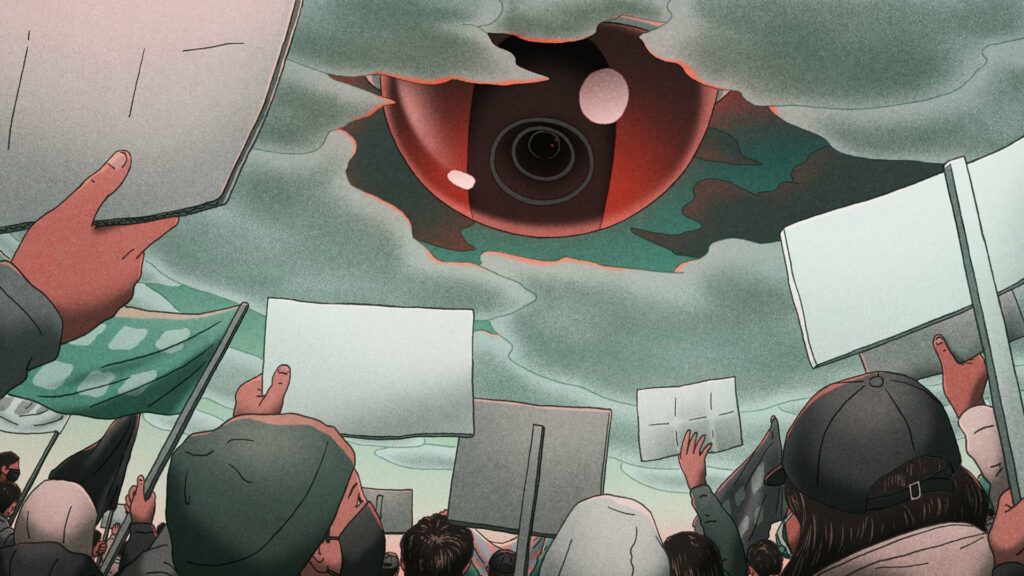China's authoritarian government is weaponising international institutions, including Interpol and the United Nations, to hunt down regime critics living abroad, an extensive new investigation by the International Consortium of Investigative Journalists (ICIJ) has revealed.
The China Targets project is a cross-border investigation led by the ICIJ alongside 42 media partners, including Le Soir, Knack, and De Tijd. It exposes how Beijing's sprawling global campaign extends its repressive tactics far beyond its borders under Xi Jinping's leadership.
Over a ten-month period, ICIJ reporters interviewed 105 individuals across 23 countries who have been targeted for speaking out – publicly or privately – against the Chinese government's policies. Among them are political dissidents from China and Hong Kong, as well as Uyghur and Tibetan minority members.
Always watching
In Belgium, Uyghur, Tibetan and Taiwanese activists describe living under constant threat. "The Chinese want people to think: 'I cannot make a move without being watched – whether in China or not,'" a Belgian intelligence official told Le Soir.
One particularly interesting case is that of Ekber Tursun, president of the Belgium Uyghur Association. Having arrived in Belgium as a political refugee, Tursun became a vocal activist in 2015. Shortly after, Chinese security services visited his family back home in Aksu, Xinjiang, warning them about his activities.
Under pressure, Tursun severed ties with his family to protect them from retaliation. He later received phone calls from suspected Chinese agents offering money in exchange for information on other Uyghurs in Belgium – offers he refused, according to Le Soir.
Belgian intelligence services confirm they have witnessed Chinese diplomats photographing and filming demonstrators during pro-Tibet and pro-Uyghur protests in Brussels. Families of activists still in China are frequently pressured to dissuade their relatives from participating in political activities abroad.
The Chinese government's tactics also extend to Taiwan's representation in Brussels.
In 2022, Beijing demanded the removal of a Taiwanese flag displayed at the Taipei Representative Office near the European Parliament. Belgian officials, keen to avoid diplomatic friction, relayed the request, and the flag was taken down in early 2023.
Sources say the Chinese embassy systematically monitors any interaction between Belgian officials and the Taiwanese mission.
The campaign also extends into cultural spaces. Organisers of the Brussels Book Fair abandoned plans to spotlight Taiwanese literature after receiving quiet warnings from the Belgian Foreign Affairs Ministry about potential "international sensitivities."
"It was a pity not to highlight such a dynamic literary scene," Tanguy Toosen, president of the fair, told Le Soir.
Related News
- China denies conducting trade negotiations with US
- Von der Leyen urges China to avoid 'further escalation' on tariffs
Belgium's State Security Service confirmed that transnational repression is on the rise, but remains invisible mainly due to victims' fears of retaliation. In December 2024, Belgian authorities convened a special meeting with regional and federal bodies to raise awareness of the threat.
Meanwhile, the Chinese embassy in Brussels maintains that issues concerning Taiwan, Hong Kong, Xinjiang, and Tibet are "purely internal affairs" and accuses dissidents of undermining China's sovereignty with the backing of "external forces."

